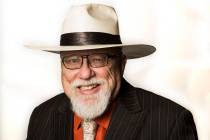Escaping despair’s deadening drag
They are the kind of survey results that provoke a reaction.
When employers read them, they worry about productivity. When I read them, I think about public health, fractured families, the heavy cost of dreams unrealized.
One thing everyone will agree on, however, is this: The survey results beg for change.
Consider:
Three years ago, the Deloitte’s Shift Index survey found that 80 percent of Americans were dissatisfied with their jobs.
The 2013 Gallup State of the American Workplace Report found that just 30 percent of employees are engaged and inspired at work.
These are the kind of depressing statistics that bring to mind the Henry David Thoreau aphorism: “The mass of men live lives of quiet desperation.”
Again and again you hear from people who don’t feel their creativity is tapped, that no matter how hard they work, they don’t feel it makes a difference in the world.
It is true, of course, that there are many men and women who find no joy in the work they do day after day, yet they still manage to stay upbeat and productive because they find so much fulfillment outside of work — in raising a family, volunteering in the community, pursuing a creative passion at home.
But it is also too often true that unhappiness at work is brought home, frequently spawning dispirited families that fracture after unhappy moms and dads make the trip to divorce court.
That some people drink and drug too much when they feel trapped in jobs they hate doesn’t surprise a growing legion of therapists who still can’t find a pill to cure desperation.
Nor does it surprise the medical community that many of the extraordinarily disciplined desperate land in their waiting rooms.
These people don’t turn to booze or pills for relief. They just suck it up and, out of pride, give their all to jobs they despise. But they suffer from conditions linked to the chronic stress associated with despair: heart disease, intestinal problems, obesity, gum disease, erectile dysfunction, adult-onset diabetes and even cancer.
About 35 years ago, when he was in his 40s, Dale Carrison had grown so dissatisfied with life that he always saw the glass as half-empty, never half-full. Tired of government bureaucracy, he left his job as an FBI agent to help his dad run an auto parts store. Although he enjoyed being with his father, he had little sense of fulfillment.
With his wife’s encouragement, Carrison entered medical school at age 43, and became a doctor at 51. Now, at 73, he’s chief of staff and head of emergency at UMC.
“I just felt like I had to make a contribution to society,” he says.
What he’s done, of course, isn’t easy. Carrison, his wife and two children lived in a small one bedroom apartment as he interned. Anyone who leaves the steady paycheck that pays for a mortgage and car note and a comfortable way of life to follow a dream will tell you something along these lines: There had better be passion for the change. Otherwise, the necessary retooling and sacrifices can become so overwhelming that your dream becomes a nightmare.
Christine Schlemmer, now 31 and a second-year medical student at the University of Nevada School of Medicine, says people could make life easier on themselves if they took the time to understand what their passions are and then planned do what they love.
All too often, however, we go through life like a pinball, finally bouncing to a job where the money is good enough to buy a car, to marry, to underwrite a house and kids. All is well until you realize that what you do eight or 12 hours a day is as fulfilling as having a root canal.
Schlemmer says as early as fifth grade she thought about a career in medicine. She reinforced that desire by becoming a paramedic, working both in Maryland and with Medic West Ambulance in Las Vegas. After a decade of doing what she could for patients on the way to the hospital, the work became unfulfilling.
She believed she could do more.
At 26, she pursued her undergraduate degree at the University of Nevada, Reno. Four years later, she began medical school.
She’ll be 40 by the time she finishes her training to become an interventional cardiologist.
“I’ve banked my eggs so I can still have a family,” she says.
She now takes classes six hours a day, studies another six hours on weekdays, and then earns money at night using her paramedic skills in a Reno hospital’s emergency room. Saturdays and Sundays mean 12 to 14 hours of studying each day. Student loan debt will exceed $100,000 by the time she finishes training.
“Some people say what I’m doing must be so hard, that I’m making such sacrifices,” Schlemmer says. “I don’t see it that way. I’m happier than I’ve ever been. I love walking through the hospital, realizing I’m going to be able to help people so much more. What really has to be hard in life is spending a lifetime not doing what you have a passion for.”
Contact reporter Paul Harasim at pharasim@reviewjournal.com or 702-387-2908.

















